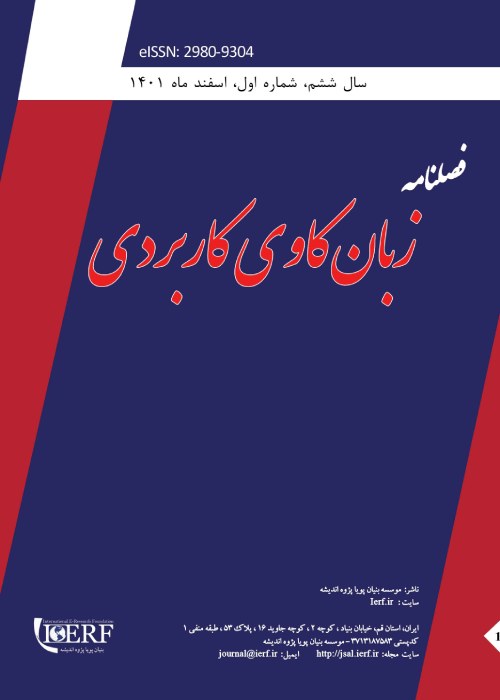Investigating the translation and structural equivalent of Fasl pronoun (Independent pronoun) in the translations of the Holy Quran, Case study of Saffarzadeh and Meshkini translations
Meaning consists of a combination of different elements, which, according to the purpose of the word, is accompanied by syntactic combinations and methods of its union. The relationship between the choice of words and the juxtaposition of the components of speech to convey meaning is in accordance with the appropriate linguistic structure. Translating concepts from any language into another language is possible through translation. One of the basic necessities for providing a faithful and desirable translation is to create and establish a "balance" between these linguistic structures. One of the cases of creating balance in linguistic structures is establishing balance in syntactic and rhetorical constructions, some of which are syntactic and rhetorical components. The pronoun of the chapter is known as one of the linguistic methods in translation which, in different situations, assumes the same meaning and its meaning changes in parallel with the context in which it is placed. The Fasl pronoun (Independent pronoun) has an effective role in conceptualization due to the semantic breadth and spiritual development that it gives to the word. Therefore, the view is that this study intends to re-read the translation of the Fasl pronoun (Independent pronoun), in Saffarzadeh and Meshkini's translations, with a semantic and equivalent quantitative method in order to examine the position of the pronoun of the chapter in their translation. In this research, it is found that two translators have not followed a fixed method in their translations, sometimes they have resorted to the dictionary translation of the pronoun of the chapter, and sometimes they have mentioned an equivalent for it that does not convey the meaning of the pronoun and sometimes they have neglected its translation.
- حق عضویت دریافتی صرف حمایت از نشریات عضو و نگهداری، تکمیل و توسعه مگیران میشود.
- پرداخت حق اشتراک و دانلود مقالات اجازه بازنشر آن در سایر رسانههای چاپی و دیجیتال را به کاربر نمیدهد.


